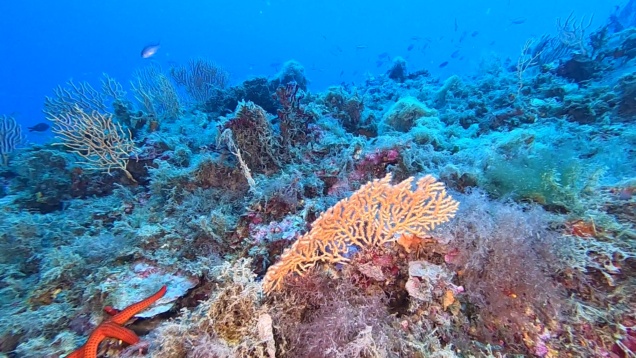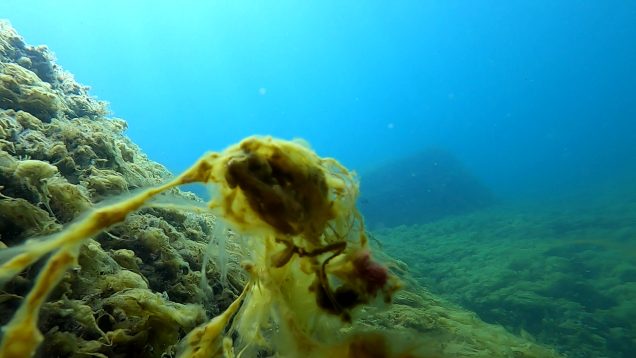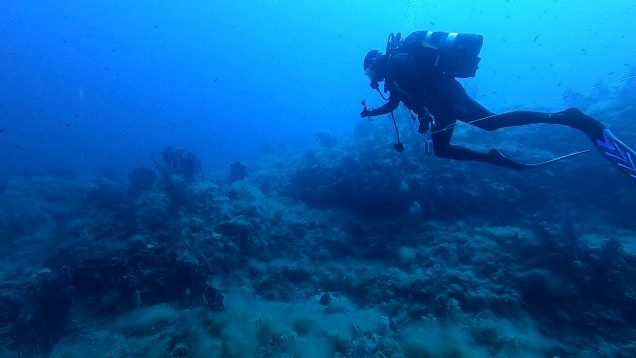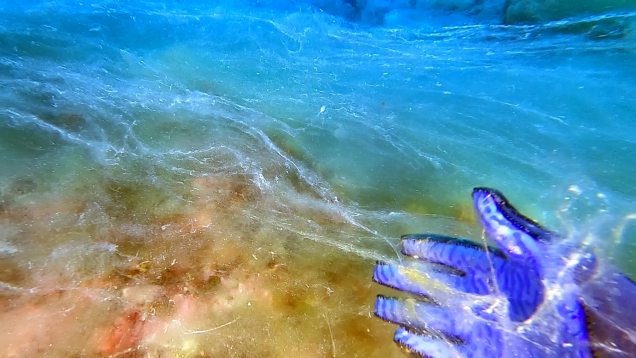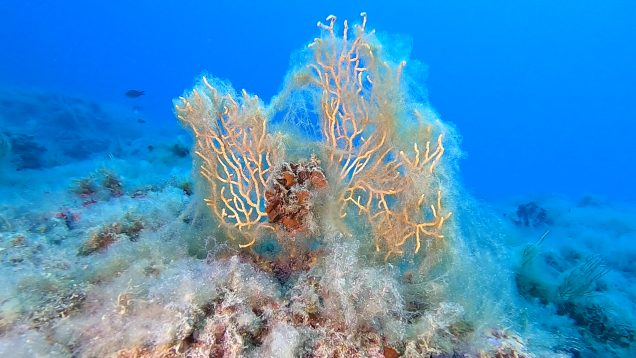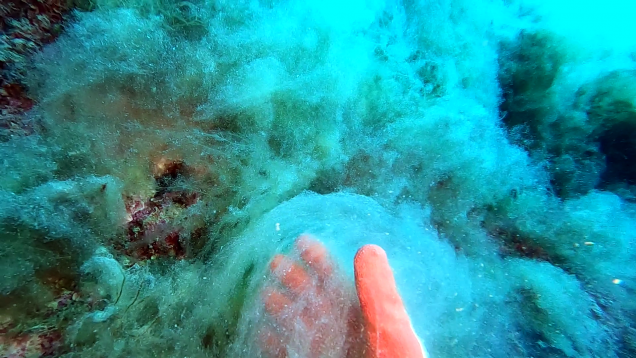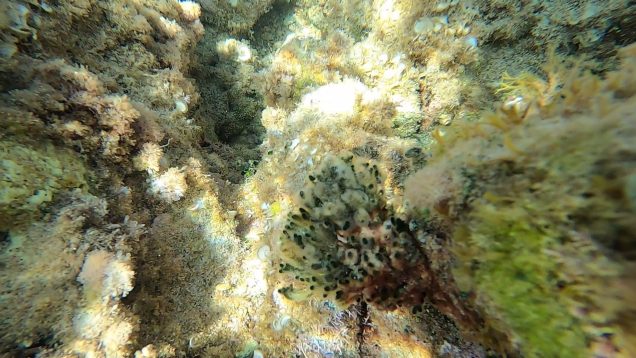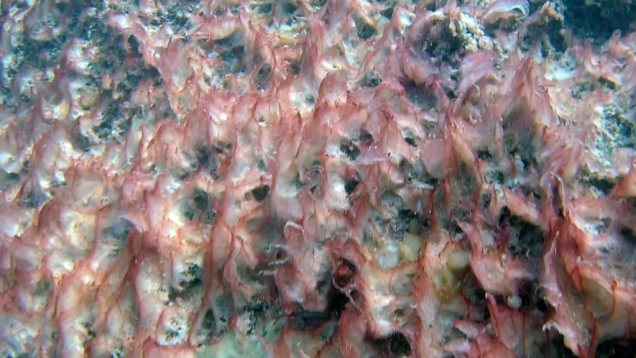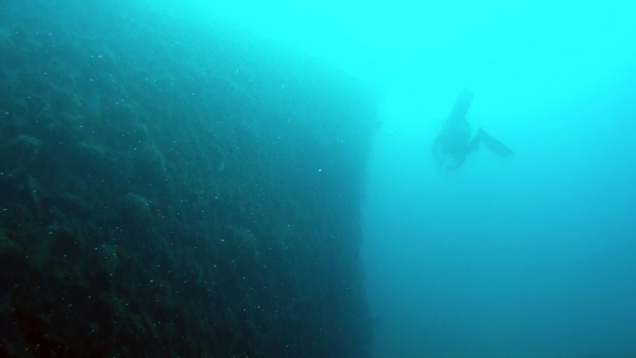Yellow gorgonian - Eunicella Cavolinii
We met Yellow gorgonian, Eunicella Cavolinii (Gorgonia gialla) on a seabed of about 42 meters deep and as we can see from the images these colonies of yellow gorgonian are almost completely covered by marine mucilage. Due to the heating of the waters, the phenomenon of mucilage is now constant and these gorgonians are the first to suffer its effects ...




